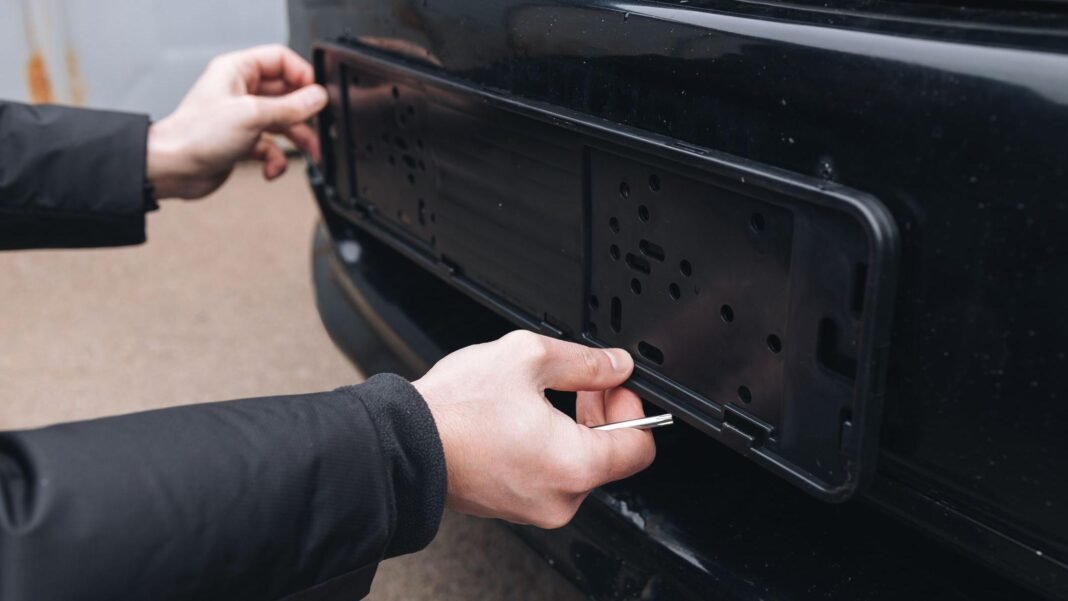A major online retailer has announced a ban on the sale of car number plates following an investigation that uncovered the illegal supply of these items without proper documentation checks.
It was found that several sellers were providing number plates without verifying buyers’ identification or legal entitlement, a practice that violates UK law. Under existing regulations, suppliers must physically inspect documents such as a driving licence or vehicle registration (V5) document before issuing plates.
In response to the findings, the retailer has removed the listings from all identified sellers and will now restrict number plate sales to novelty items only.
Concerns Over Number Plate Cloning
The illegal distribution of number plates makes it easier for criminals to engage in vehicle cloning. This involves attaching copied plates to another vehicle of the same make and model, allowing offenders to avoid penalties while the fines and legal repercussions are wrongly assigned to the innocent owner of the original car.
Recent data revealed a 64% increase in fines cancelled due to car cloning incidents over the past three years in London. Investigators were able to purchase number plates from multiple suppliers without being asked for any form of documentation.
The companies identified in the investigation included:
- Four firms that delivered number plates without requesting any documents.
- Two firms that initially stated ID was required but still sent out the plates without verification.
- One business that followed up with a request for documentation but proceeded with the order even when the request was ignored.
Industry and Government Response
Concerns have been raised over the ease with which criminals can acquire number plates. A member of Parliament described the findings as “hugely troubling” and called for stricter enforcement of existing regulations.
One company implicated in the investigation had claimed to be officially registered and selling “road-legal” plates. Another, linked to a well-known entrepreneur, was found to have supplied plates without the required checks.
A spokesperson for one of the businesses involved stated that compliance with the law was a priority and pledged to ensure all future transactions adhered to legal requirements. Another company admitted that a failure to follow proper procedures had occurred due to oversight by temporary staff, promising additional training to prevent similar lapses.
Industry experts have warned that outdated regulations have contributed to the problem, allowing online platforms to become a source of illegal plate distribution. Some suppliers are advocating for a shift towards digital verification methods, which are already used by other government agencies for identity checks.
Victims of Cloning Speak Out
The rise in number plate cloning has had serious consequences for innocent motorists. One woman from Surrey was wrongly accused of fleeing the scene of an accident in Ilford, despite never having been to the area. She only discovered her vehicle had been cloned after receiving a prosecution letter from the police.
The Metropolitan Police later confirmed that her number plates had been copied, but an insurance claim against her remains unresolved seven months later. Expressing frustration over the situation, she called for harsher penalties, including potential prison sentences, for those involved in plate cloning.
Calls for Stricter Regulations
Approximately 90,000 penalty charge notices were cancelled between 2021 and 2023 due to number plate cloning incidents. Industry leaders warn that the growing issue is being fuelled by outdated regulations that do not account for the rise of online sales.
A leading number plate supplier has highlighted the need for updated policies, arguing that current rules requiring physical documentation checks are no longer practical in an increasingly digital marketplace. A pilot scheme is being developed to test the use of digital identity verification for number plate purchases.
The DVLA has reiterated that all legitimate suppliers must verify a buyer’s identity and entitlement before issuing plates. Members of the public have been encouraged to report any businesses that fail to follow these legal requirements.
Government officials have acknowledged the issue and confirmed that a new Road Safety Strategy is in development, aiming to tackle number plate cloning and other related crimes. Further details on proposed measures are expected to be announced in the near future.
Stay tuned to London Pulse News for updates on the crackdown on illegal number plate sales and the push for digital verification.


